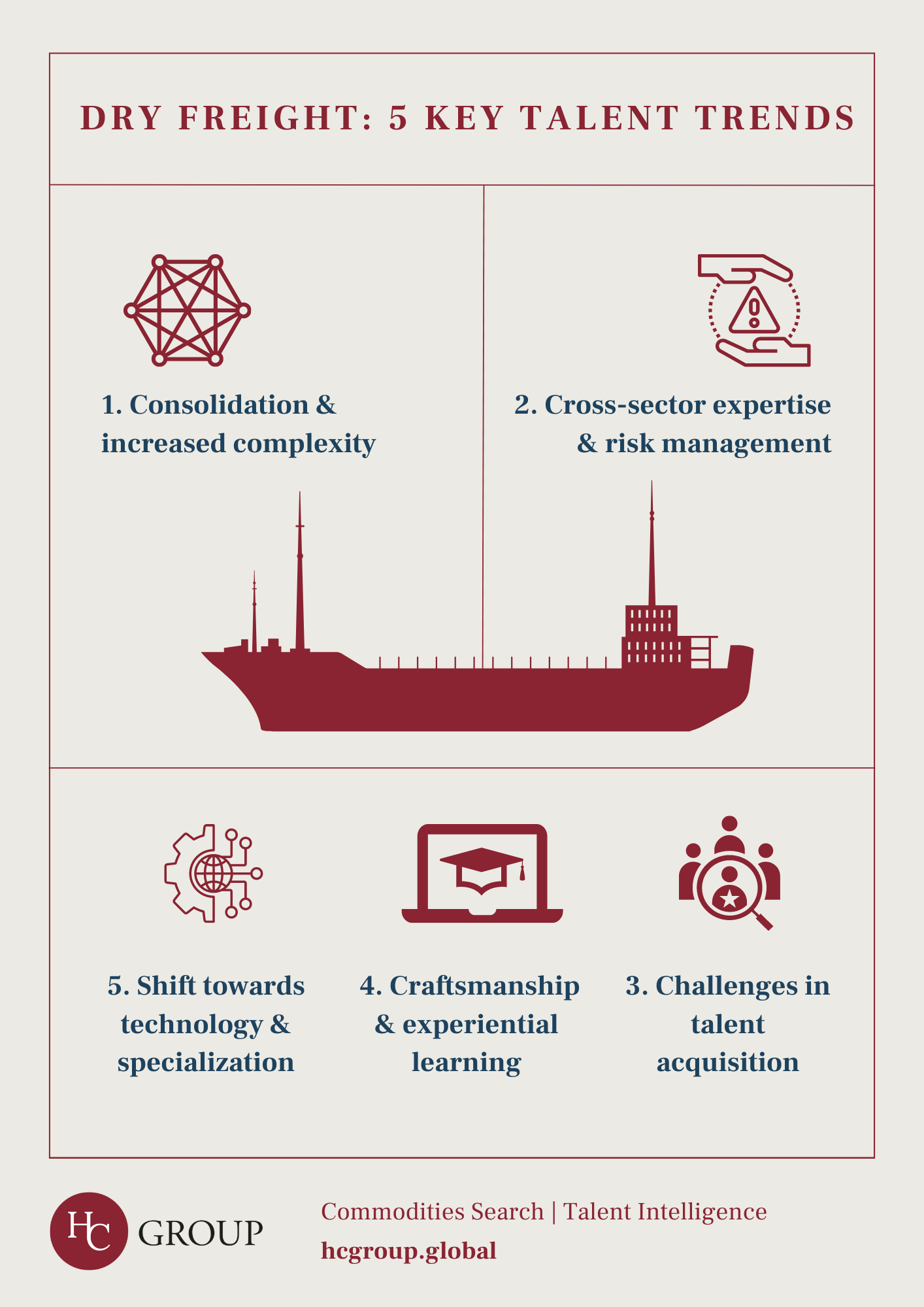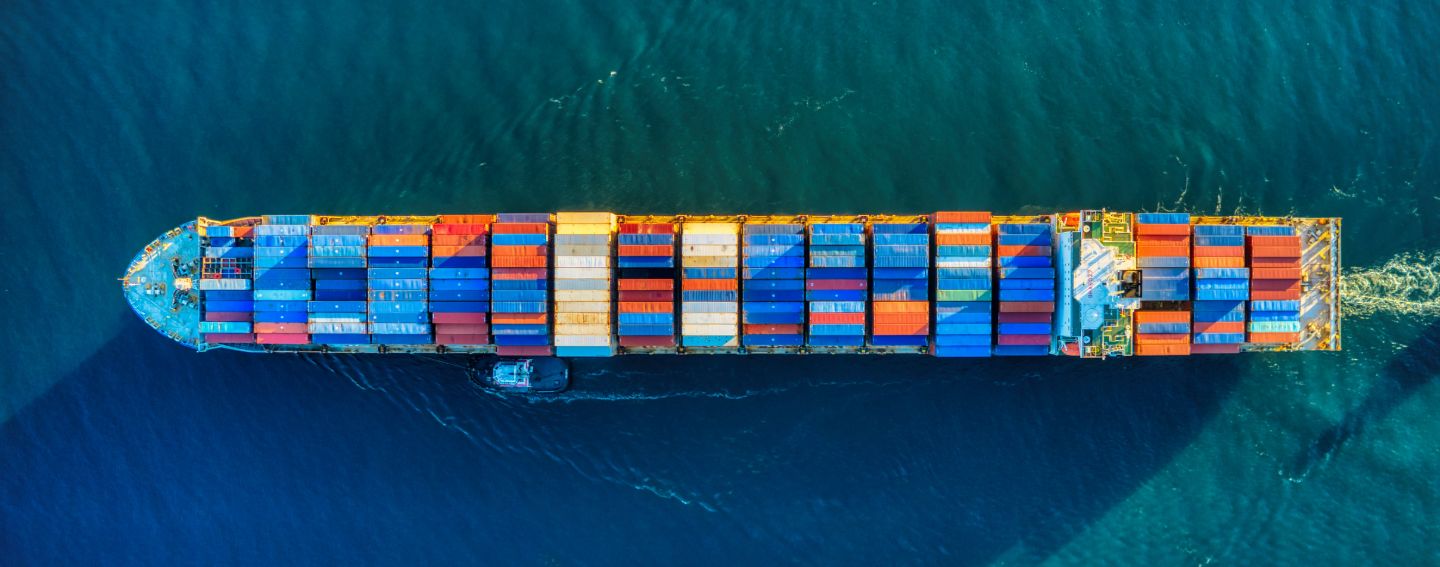Dry freight - and freight markets in general - are one of the biggest sources of risk and opportunity for traders and charterers today. This is driving convergence between the traditional separation of ship owners, charterers and the traders. What is the impact on talent - and how can employers and prospective employees adapt?
HC Insider Podcast host Paul Chapman spoke to Mads Frank Markussen, Head of Research and Market Intelligence at the European ship owner and freight trader, Navi Merchants. Listen to the full episode here.
Below are five key talent takeaways from their conversation.
1. Consolidation and Increased Complexity
The dry freight market is going through a period of consolidation. This is resulting in fewer seats and has brought about heightened levels of risk and complexity, particularly for those involved in freight exposure management. With larger entities emerging from consolidation, there is a greater need for talent capable of navigating these complexities effectively.
2. Cross-Sector Expertise and Risk Management
Another key trend is the coalescence of traders across both wet and dry sectors. This suggests a shift towards a more integrated approach to risk management, where individuals are expected to have expertise in managing diverse types of freight. As a result, there is a growing demand for teams that can handle the complexities arising from this blending of expertise.

3. Challenges in Talent Acquisition
As demand for specialized talent rises, the freight trading sector faces challenges in finding individuals with the skills and experience needed. This scarcity of specific talent poses a significant hurdle for companies seeking to bolster their teams. This is made harder by the fact that during challenging market conditions, there can be more limited investment in talent development, amplifying the shortage of qualified professionals during later periods of growth.
4. Craftsmanship and Experiential Learning
Unlike many other industries, shipping is characterized by its reliance on craftsmanship and learning built up though real world experience. The knowledge required to excel in this field often comes from practical exposure to the intricacies of global shipping operations. The talent pool tends to come from individuals who have undergone apprenticeships or gained first hand experience working in shipping-related roles - underscoring the importance of talent development programmes in these sectors.
5. Shift towards Technology and Specialization
Shipping is experiencing a notable shift towards a greater reliance on technology and specialization. As digital tools become increasingly integral to freight trading operations, there is a growing demand for individuals with expertise in areas like mathematics, technology, and AI. More broadly, this reflects the wider move towards standardization and increased efficiency across freight trading.
Amid rapid changes in market forces and technology, shipping and logistics companies are rethinking their talent strategies.

